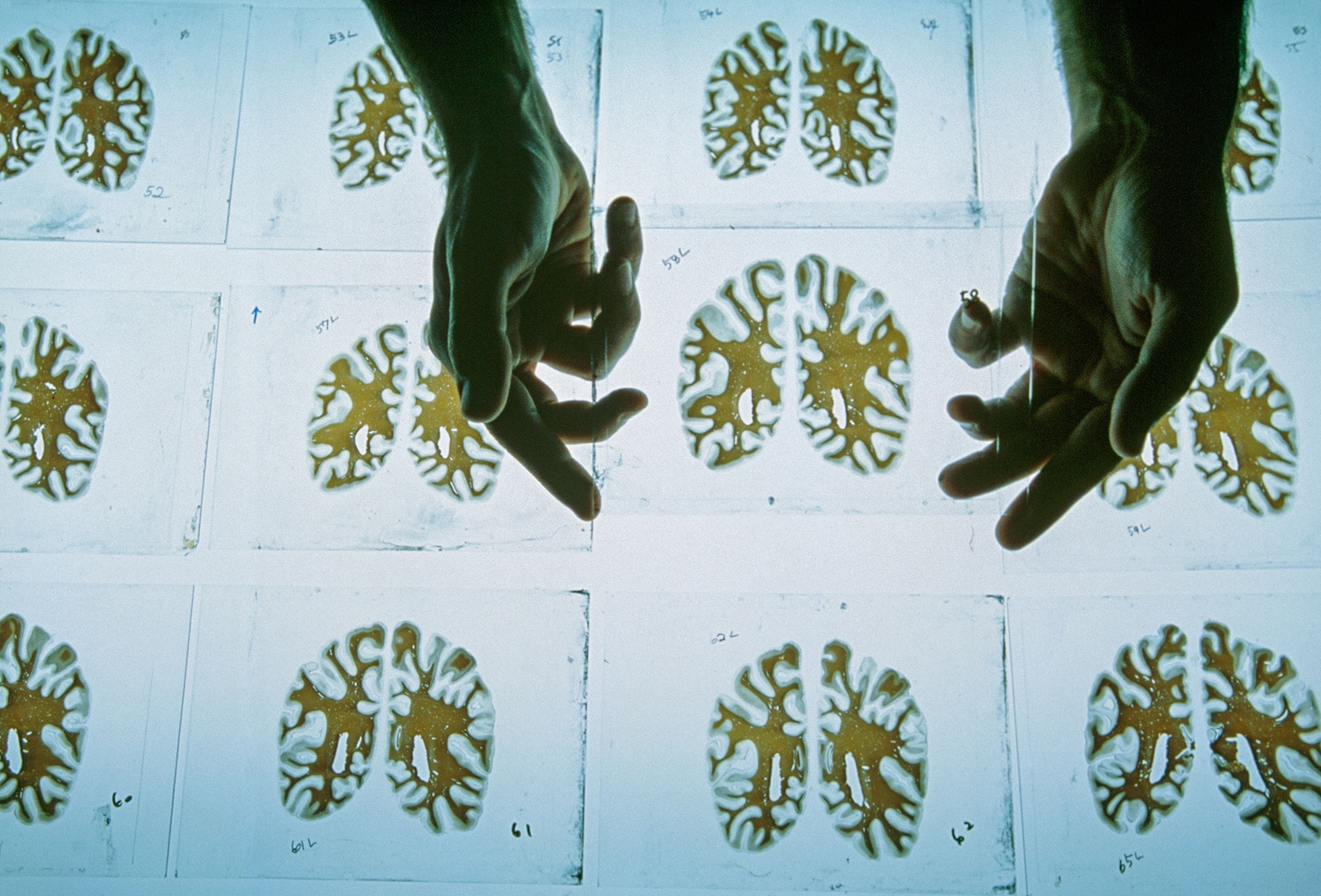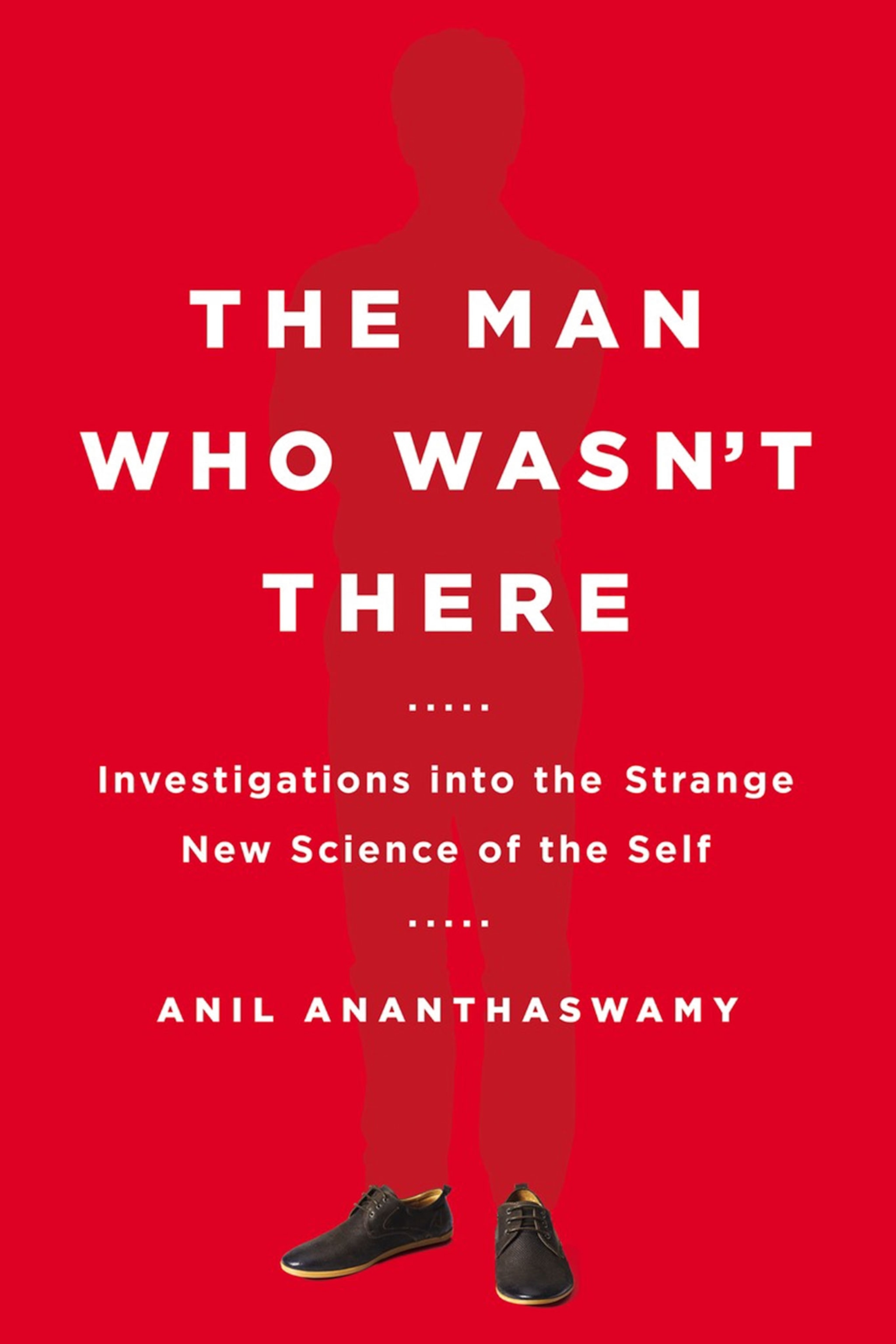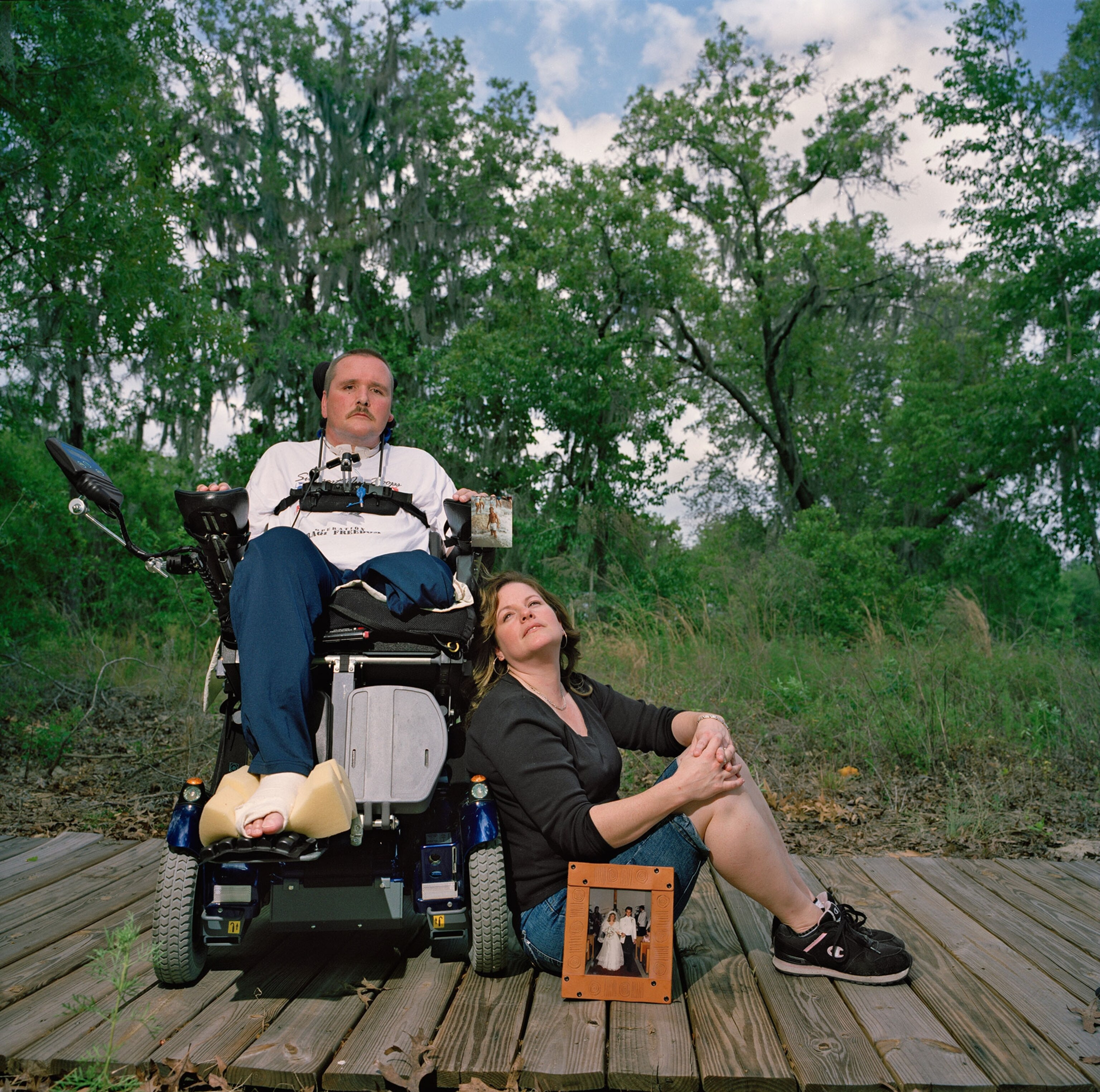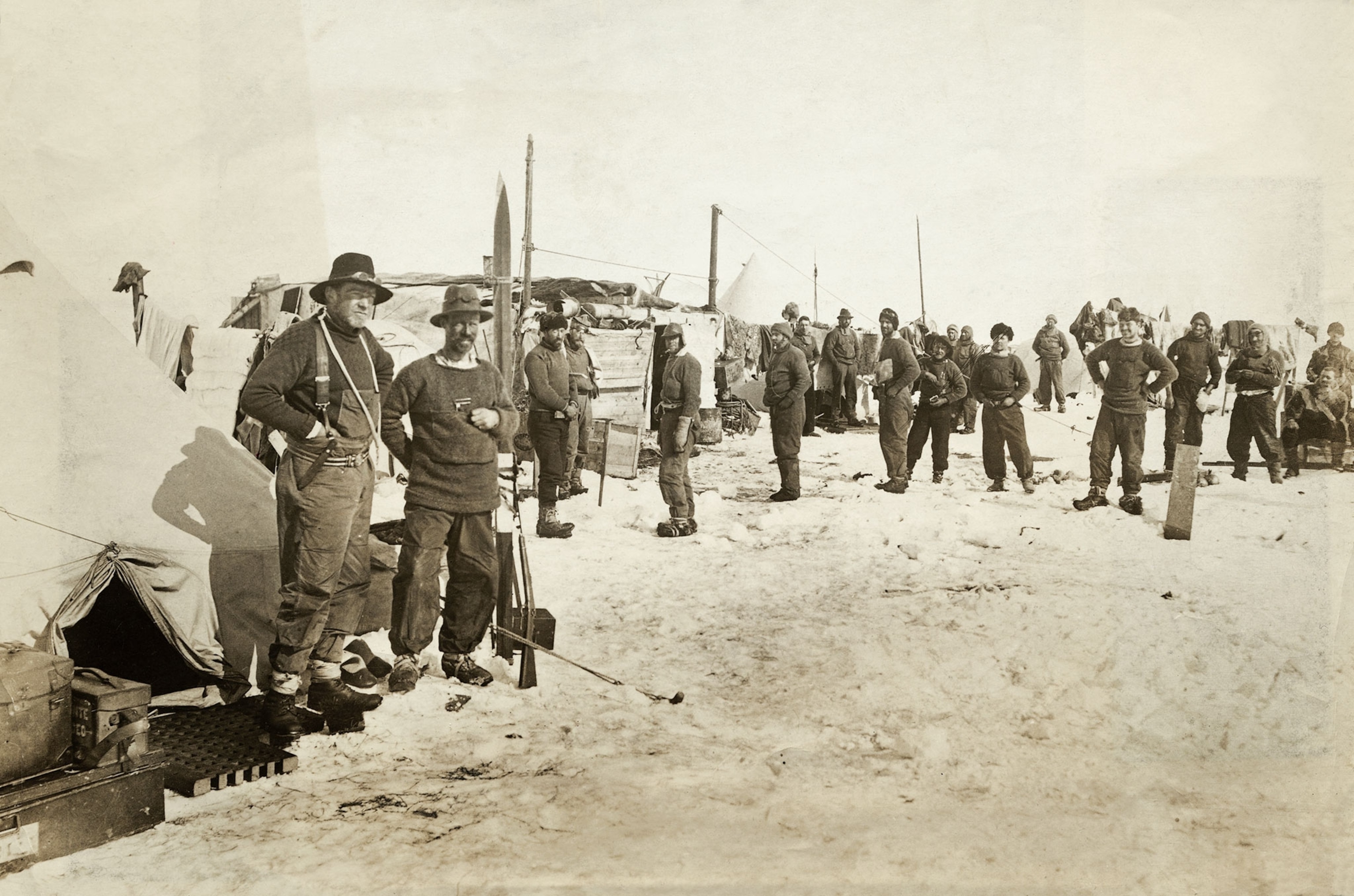
How Neuroscience Is Helping Answer the Question ‘Who Am I?’
Diseases of the mind like Alzheimer’s help us understand what it means to exist or, conversely, feel as if we don’t exist.
How do we know we exist? What is the self? These are some of the questions science writer Anil Ananthaswamy asks in his thought-provoking new book, The Man Who Wasn’t There: Investigations Into the Strange New Science of the Self. The answers, he says, may lie in medical conditions like Cotard’s syndrome, Alzheimer’s or body integrity identity disorder, which causes some people to try and amputate their own limbs.
Speaking from Berkeley, California, he explains why Antarctic explorer Ernest Shackleton fell victim to the doppelgänger effect; how neuroscience is rewriting our ideas about identity; and how a song by George Harrison of the Beatles offers a critique of the Western view of the self.
You dedicate the book to “those of us who want to let go but wonder, who is letting go and of what?” Explain that statement.

We always hear within popular culture that we have to “let go,” as a way of dealing with certain situations in our lives. And in some sense you have to wonder about that statement because the person or thing doing the letting go is also probably what has to be let go. In the book, I am trying to get behind the whole issue of what the self is that has to do the letting go; and what aspects of the self have to be let go of.
You start your book with Alzheimer’s. Tell us about the origin of the condition and what it tells us about “the autobiographical self.”
Alzheimer’s is a very severe condition, especially during the mid- to late stages, which starts robbing people of their ability to remember anything that’s happening to them. They also start forgetting the people they are close to.
When you look at it from the perspective of the self, what Alzheimer’s is doing is eroding your narrative or autobiographical self. This is the story we tell others about who we are, and the story we tell ourselves. It’s not necessarily something we’re consciously thinking. It is a narrative built upon episodes that have happened in our lives.
When you look at it from the perspective of the self, what Alzheimer’s is doing is eroding your narrative or autobiographical self.Anil Ananthaswamy
What Alzheimer’s does is make it well nigh impossible to have new memories, so your narrative stops forming. As Alzheimer’s progresses it then starts eating into existing memories and eroding your earlier narrative self.
Several of your case studies are of extreme conditions shared by a small minority of people, like Cotard’s syndrome. Why should the rest of us care?
They are extreme conditions, especially Cotard’s because there are only a few hundred cases recorded in medical literature. But it’s when things go awry that we get a peek into how certain processes in the brain work. If everything is going OK, we don’t get a handle on what is happening.
For instance, the feeling of existence that we all have. We never question why we feel that we exist. It seems such an obvious thing to say, "I exist." Of course I do! But then you have a condition like Cotard’s, where a person is claiming, "I don’t exist."
That instantly raises the question of what it means to say "I don’t exist." What are the processes in the brain that have gone wrong, which are making the person have such a strong conviction about not existing? Conversely, it tells us what it might mean to say, "I exist."
It’s when things go awry that we get a peek into how certain processes in the brain work. If everything is going OK, we don’t get a handle on what is happening.Anil Ananthaswamy
How are advances in neuroscience changing our understanding of the self?

They’re giving us a peek into the various processes that are going on in the brain and the body, and I want to keep emphasizing that it’s the brain and body together. It’s giving us a sense that the self is not some monolithic thing sitting in the brain or outside the brain. It’s actually a whole set of neuro-processes, which need to work in concert for us to have a sense that we have a being, that we are an entity to whom things are happening and have a perspective on the world.
We look out on the world from behind our eyes, and we have a sense that everything we perceive is somehow private to us. So it’s shedding light on all these various aspects of the self.
The chapter “The Man Who Didn’t Want His Leg” sounds like a Monty Python sketch. But there really are people who want to amputate their own limbs, aren’t there? Tell us about apotemnophilia.
Apotemnophilia was the name given to the condition when it was first written about in modern medical literature. Now it’s called body integrity identity disorder, or xenomelia, which means foreign limb. The fact that neuroscientists are still struggling to name it is an indication that they are still trying to understand what’s happening here.
One of the best ways to get a handle on what might be happening is to think of the condition most people will be familiar with, which is phantom limb. Phantom limb is a situation where, when people have had an amputation, they continue to feel the presence of their limb. This raises the question as to what it is that you are perceiving. Why do you continue to feel a limb that is not there?

One answer is that the brain creates “maps” of the body and what we perceive are these maps. In the case of phantom limbs, the map should have reorganized to reflect the current physical condition of the body. But it hasn’t and you continue to feel the old map.
Now, imagine the inverse condition, where your body is functioning well but the way the brain has mapped some body part is not OK. That is body integrity identity disorder, where people feel a lack of ownership of some part of their body. The suffering can get so extreme that people will try and amputate a limb and in order to feel more “complete.”
You say we do not just receive sensations from the outside world but from inside the body. Explain that paradox.

The brain is basically an organ that monitors sensations that the body is getting from the outside through our ears, eyes, nose, and skin etc. But it also has to keep track of what’s happening within the body. In fact, in some sense, its primary purpose is to keep the body in a favorable physiological state for survival. The way it does this is by having a lot of information coming into the brain from within the body, things like, how does the brain know what the blood pressure is or the temperature of the viscera?
Receptors in our joints and tendons also tell the brain about the three-dimensional location of the various body parts in relation to one another, which helps the brain construct a sense of the bodily self. If you close your eyes and don’t look at your body, you still have a sense of how your body is positioned in three-dimensional space. That is because of the information coming from within your body. The brain needs all of that to make sense of what the body is doing in its environment.
The brain is basically an organ that monitors sensations that the body is getting from the outside through our ears, eyes, nose and skin etcetera. But it also has to keep track of what’s happening within the body.Anil Ananthaswamy
You say that self-awareness gave humans an evolutionary advantage. How?
When we developed memory and an awareness of ourselves as entities spanning time, it would have made it easier to plan—knowing how things would unfold in the future, or how things had happened in the past. All of these would have been survival advantages.
The doppelgänger effect was experienced by, among others, the Antarctic explorer Ernest Shackleton. What was going on?

It was at the very end of Shackleton’s expedition. A large number of team members had already become stranded in the Antarctic ice, so Shackleton and three other team members tried to get help. They were extremely exhausted, and all the team members reported sensing the presence of another person alongside them. It is a condition that a lot of mountaineers talk about. It seems to be caused by some malfunctioning of the brain’s processes under extreme exhaustion and oxygen deprivation.
One of my favorite George Harrison songs is I Me Mine. What’s the message of the song in relation to the self?
I Me Mine can be thought of as the different layers of the self. The “I” is the part that is at the core of being a self: the thing that is the subject of experiences and to which things are happening. Me and mine are extensions of that. You look at your body and say all of this is “me.” There are also aspects to the self that you appropriate, like your house or family or friends and those become “mine.” So the song is basically telling you about the progression of the way the self feels within us, and is probably constructed within us.
Epilepsy can trigger ecstatic experiences, akin to those of mystics and visionaries. Tell us about Aldous Huxley’s experiments.
There is a tradition within literature of ecstatic seizure caused by epilepsy, particularly in the work of Fyodor Dostoyevsky, who was an epileptic himself. Huxley’s Doors of Perception is about his experiences with mescaline, which he took under the supervision of his psychiatrist, Humphrey Osmand.
He basically had what would today be called a psychedelic experience. The word "psychedelic" didn’t exist to describe what was happening, but he had an experience in which things that would otherwise have seemed ordinary, like a flower vase, became imbued with a sense of vividness and vitality. One very striking thing he describes is how his sense of time slowed down. In fact, he completely lost his sense of time.
You end your journey in search of the self in Varanasi, in your native India, with the question, “ Who am I?” Did you find the answer? And what keys may Buddhism hold for us?
After working on this book I came away with the sense that the debate over whether there is a self or whether there is no self is still ongoing but at a very subtle level. I think philosophers and neuroscientists agree that a lot of things we think make up the self are just neuro-processes in the brain, creating an impression of a seemingly solid entity. But actually these things can be disrupted, like your narrative self or even your sense of what your body is. The question of whether there is something at the very base of it all is an open question that neither philosophy nor neuroscience has answered.
The trip to Varanasi didn’t help answer these questions. It was more a way to write about a place where someone tried to answer these questions a long, long time ago and that was Buddha.
Cartesian dualism separated the mind and body, giving the mind a place apart from the body and placing it on a pedestal. Neuroscientists have walked away from that because it’s clear that the mind is not some separate entity that exists independent of the body. Body, brain, and mind are all interlinked. The basic Buddhist idea is that our attachment to the self, to the things we think we are, and our unwillingness to let go, is the cause of suffering, because these are all constructed entities. An illusion.
Simon Worrall curates Book Talk. Follow him on Twitter.